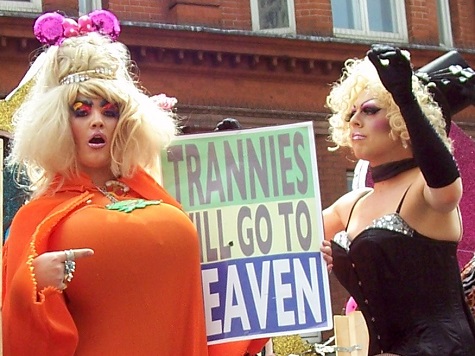
Britain’s Law Commission has called for legislation on hate crimes to be extended to cover transsexuals, the disabled and people targeted by criminals because of their sexual orientation, according to the Daily Telegraph.
The commission also called for a full review of rules governing aggravated offences, because it believes it is wrong that police can record hate crimes against these groups but the perpetrators do not get stiffer punishments in court.
Professor David Ormerod QC, the Law Commissioner for criminal law, said: “We recommend a thorough review of the scheme should be carried out. We believe this would provide the criminal justice system with its best opportunity to respond effectively to hate crime in all its forms.
“The law needs to send a strong and unequivocal message that hate crime is unacceptable.”
At present there are a variety of rules that govern crimes that have race or religion as aggravating factors. However the law would need to be changed to allow harsher punishments to be meted out in cases of crimes against the disabled, transsexuals or those perpetrated on the grounds of sexual orientation.
Under the rules on Common Assault a perpetrator can be imprisoned for up to six months if found guilty. If the assault can be proved to have been racially motivated that can rise to up to two years.
Prof Ormerod also wants offences to be noted on the Police National Computer to make it easier to detect patterns of abuse against minority groups. His criminal law panel did reject the idea of reforming the Public Order Act to make it illegal to stir up hatred against the disabled or transgendered groups.
The panel said that it concluded: “if new offences of stirring up hatred on the grounds of disability and transgender identity were created, there would be very few successful prosecutions,”
It went on to say that “symbolic and deterrent effects of the new offences” would be “very limited”.
The act has been characterised by former Shadow Home Secretary as “attacking free speech” because it created an offence of using “insulting words or behaviour”. Leading to the prosecution of people who have done little more than express their opinion on religion, gender or sexuality.
Whilst fear of crime is something of a national sport in Britain, there have been concerns raised about creating a two-tier legal system. With one group getting more protection than others because they are deemed to be in some form of minority.
At present these protections have not been extended to the disabled and transsexuals there are already a large number of people who receive special protections, over and above those afforded to the majority of Britons. This has led to allegations that one person’s victimhood is worth less, in legal terms, than another’s because they happen to be in the wrong gender, race or sexual group.

COMMENTS
Please let us know if you're having issues with commenting.